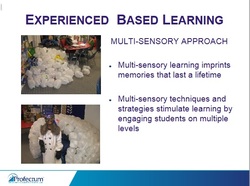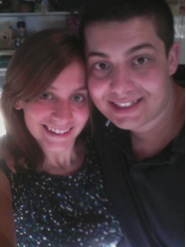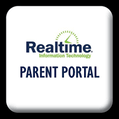|
Students can experience difficulty transferring learned skills from one environment to another. Therefore, Community-Based Instruction is an integral part of our curriculum at CTC. Community-Based Instruction allows students to enhance their functional skills within a natural community setting, where such skills are used, in order to ease and enhance transitions to independent living, community participation, and employment.
A simple visit to a local store could become a great learning experience. Recently, my middle-aged students paid a visit to TJ Maxx. The assignment at TJ Maxx was to find items that would complete a "dress up" occasion outfit. This led to a class discussion about what occasions would require a suit, a tuxedo, or just a dressy shirt. This discussion led to another discussion about when it was appropriate for a boy or man to wear a tie. We considered which special occasions required a tie, and also which occasions required us to present our "best self" (possibly with a tie) such as a job interview. Our discussion culminated in a tie-tying activity where each student was given a necktie and then given verbal and modeling instructions on tying a Windsor Knot. Each and every boy in the class showed complete interest in the activity and all students were determined to learn this skill. To remember this fun and useful activity, we took a class picture with each student wearing a tied tie. Experience-based learning activities can be used at home and at school. It’s easy to create great learning experiences where the kids (and you) will have fun! (Kelly Reilly, Teacher, Celebrate the Children)
0 Comments
 It’s only the end of September and students, teachers and parents are already asking me if my classroom is building the igloo this winter. Of course we will be!! Every year, my students collect over 300 gallon-sized jugs starting in October to build a life sized igloo in the winter months. This is a perfect example of how I foster experienced-based learning in my classroom. During the cross curricular subjects of the Arctic, students are actively engaged in learning and obtaining a deeper knowledge of the subject. From past experiences, it is evident that they retain the knowledge gained through this approach far more readily than through traditional textbook-centered learning. Last year, I was lucky enough to present at the First New Jersey Educator’s Conference titled, “Raising the Bar: Educational Approaches that Go Beyond the Labels”. My presentation focused on the difference between facilitating “discovery” and “teaching” in the classroom. The workshop looked at how through asking the right questions and providing specific kinds of experiences, educators can assess a child’s foundational capacities that support the comprehension of academic content. In order for children to internalize concepts, they must make them their own. Providing opportunities for the “discovery” of the “meaning” of concepts allows even the most diverse learners to develop true comprehension and knowledge. During the presentation, I showed the process of the life-sized igloo in my room. I explained that although I provided the students with the jugs, I had them discovery how to build it through trial and error. Then once they built it, I asked many thought provoking without telling the students all about igloos. They asked questions and I helped scaffold questions to lead them to problem solving a solution. I leave you with this thought. Wouldn’t it be great if all schools could put the textbooks down and have the students participate in high impact lessons inclusive of emotional components? Then they could capture and tap into the students’ affect and interest, thus supporting deeper connections and understanding of targeted concepts. I am lucky that Celebrate the Children allows me to use experienced based teaching in my classroom. It was nice to start the year reflecting on my teaching methodology. I will be sure to share a picture of our igloo this winter including some of the questions my students ask and some of the questions I will ask to get them problem solving. (Jennifer Robak, Teacher, Celebrate the Children) An excerpt from Dr. Knox's Dissertation: Celebrate the Children (CTC) strongly embraces contemporary research indicating autism is not a cognitive disorder but more so a movement disorder. In students with Autism Spectrum Disorders (ASD), the ability to sequence ideas with purposeful movement is a challenging motor task (Hill & Leary, 1992, 1993). According to the National Autism Association (2012), autism is a bio-neurological developmental disability that clearly influences movement. In support of this theme, Donnellan and Leary (1995) coined the term “movement differences” to explain this movement disorder as a person having difficulties in starting, stopping, combining, executing, continuing, and switching movements. Performing dual cognitive and motor tasks is very difficult (Burke, 2005). A movement disorder affects the profile, such as a person’s speech, images, thoughts, perceptions, memories, and emotions. Movement differences make it impossible for an individual to demonstrate competence, particularly through traditional assessment tests (Donnellan & Leary, 1995). According to Donnellan & Leary (1995), the movement disorders are the following (p. 36): · repetitive movement--self stimulation and repeated actions; · abnormal facial movement—expressionless, flaccid, or fixed expression, abnormal eye movements, grimaces, teeth grinding, facial tics, lip movements; · abnormal gait—to fast, slow, halting, peculiar, stiff walking; · mannerisms—posing, unusual manner of eating, tic-like movements; · blocking and freezing—lack of movement, difficulty starting movement, stopping during on-going movement, difficulty completing actions; · unusual postures—odd hand and body gestures, flexion of neck, trunk, or limbs; and · abnormalities in muscle tone—too little or too much muscle tone, rigid, floppy. The concept of movement differences is complicated to grasp, especially for schools or individuals with no problems with movement. However, a profound appreciation can be developed by considering it through the eyes of someone with movement impairment. As indicated by Tracy Thresher (2005) during a conference at Syracuse University’s Institute of Communication and Inclusion (ICI) he told his story: Movement is my disability. Perhaps I look like I do not understand you, but I do. What is hard is for me to show you. Typing allows me to show you my intelligence. More importantly, the typing gives me focus you see Harvey holding my arm. That support helps me focus on typing. The typing then flows from my brain, the words leaping out like flames. Learning just the right amount of physical support is essential, too little or too much and I cannot type the words. The more the facilitator learns very much then hooks into my confidence. . . . This is my biggest problem getting my hand to do what I want it to. Feeling my body in space is not easy. It is lost much of the time and without the facilitator’s physical touch. I have problems with slowing down and I type automatic words. I get going to fact and can’t stop with movement issues like initiation, rhythm and pace, perseveration, impulsiveness, and lack of proprioception. . . . FC is for people like me who have little control over their speech and have problems with controlling their bodies. . . . Typing is my true voice without it I am lost in a world of silence. The facilitator must understand that my speech is not reliable and does not reflect my true intelligence. (Thresher, 2005) Tracey’s account offers a convincing image to help explain the experiences of students with ASD who also have motor deficiencies. Fortunately, CTC does a great job understanding the connection to movement and presuming nonverbal students are extremely intelligent, which is a significant departure from traditional thinking in many places called schools. (Dr. Mike Knox, Principal at Celebrate the Children)
"While at times it's hard, having a brother with autism is the most rewarding thing in my life."9/12/2013  While at times it's hard, having a brother with autism is the most rewarding thing in my life. Eric is the most intelligent, humorous, caring, loving, talented, dedicated and trustworthy person I know. He can memorize every cast member to a movie; remember the exact date of things that happened years ago and can sing any Broadway song you could think of. Even though I'm older Eric never lets me forget that he is half a foot taller than me. Any chance he gets he will come stand next to me, moving his hand from the top of his head to mine, getting the biggest smirk on his face. Cracks me up every time. If ever I'm upset or sad Eric is always right there with a box of tissues telling me it's okay followed by giving me one of his huge bear hugs. He'll even start to make funny faces at me to get me to laugh. Eric is awesome at singing, drawing, writing, dancing, playing guitar, baking, and playing sports. He never fails to impress me with the things he can do. Eric would never think about missing a day of work. He could be sick or have the option to go on a field trip and would always choose to go to work. I love being able to hang out with my brother any chance I get. That is one thing I regret about going to college four ours away from home. He is an easy kid to miss. When I am home on break it's like we were never apart. We are both still a pair of goofy siblings always laughing and having a good time together. And I must admit I feel like the coolest person in the world when we do our personal handshake. (We made that up over ten years ago.) Throughout the years Eric has opened my eyes to a different way of thinking and I am by far a better person because of it. He is the greatest brother I could ever ask for and I'm certainly honored to be his sister. I love my dude very much! (Laura Smith- Sibling) Research identifies engagement, joint attention, as required in order for language and cognition to develop. We also know much more about how all kinds of learning occurs. We understand that we learn with our minds and our bodies. For example, we need to incorporate the understanding of how the ability to see things from different views supports the gestalt of what we are discovering and learning; how the ability to plan and sequence motor actions is related to initiating and sequencing ideas. This whole-body approach to learning is progressive but, at the same time, so fundamental in the world of developmental approaches to learning. When children learn to master and integrate their emotions, ideas, and bodies, the sky is the limit!
|
AuthorsContributions to this blog are made by Celebrate the Children's highly talented, interdisciplinary team and wonderful families. Archives
January 2022
Categories
All
|
|
OUR SCHOOL
|
UPCOMING EVENTS
Ride For Autism
Saturday, May 4, 2024 Let's Play! 20th Anniversary Gala
Thursday, May 16, 2024 |
CONTACT
230 Diamond Spring Road
Denville, New Jersey 07834 ph: (973) 989.4033 fax : (862) 244.4969 |
|
Interested in learning more about our program?
|
Anti-bullying Coordinator:
Jennifer Carucci jcarucci@celebratethechildren.org 973-989-4033 Ext 413 |
2023 Celebrate the Children

 RSS Feed
RSS Feed

